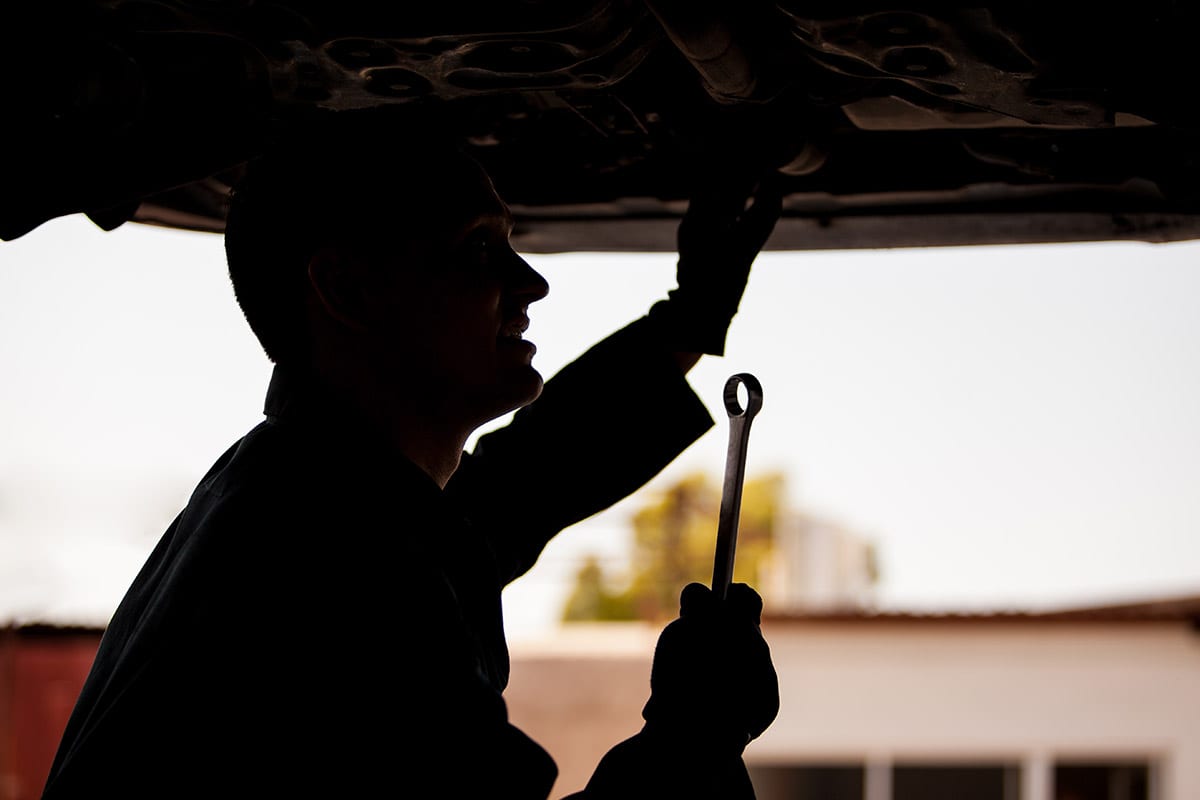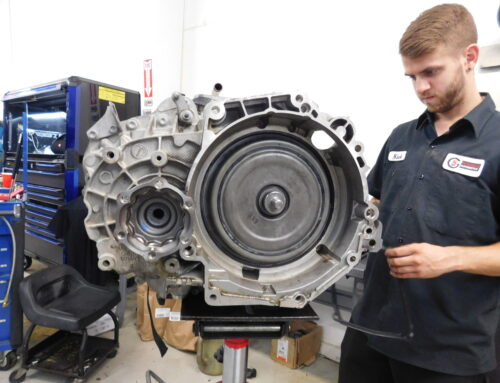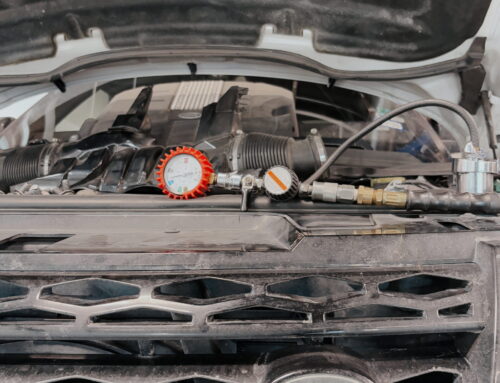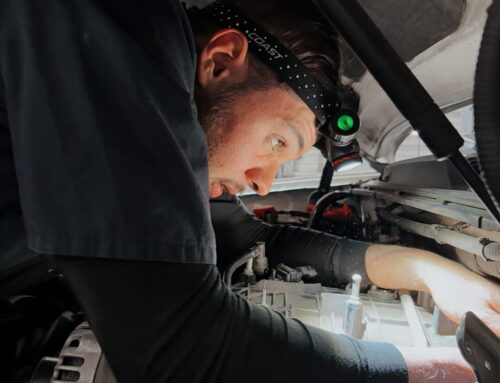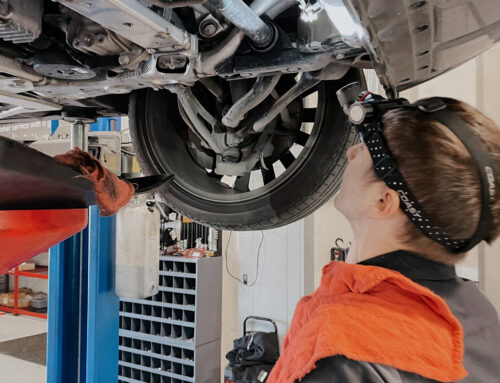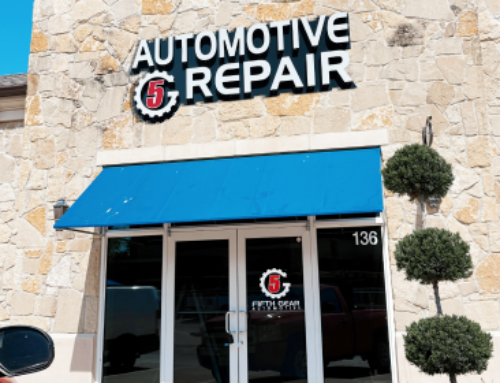- Get recommendations from your local social network . . . check.
- Read reviews on the internet . . . check.
- Check certifications . . . done.
- Check out the shop . . . done.
- Talk with the owner, mechanics and ask questions . . . check.
Those are five of the most important things to consider when looking for the right auto repair shop in Highland Village, TX, but there are other things to consider.
In this post we’ll look briefly at other factors that can help you differentiate between one auto repair shop in Highland Village, TX and another.
What Parts Does the Shop Use?
This is an important distinction and one definitely worth asking when evaluating auto repair in Highland Village, TX or when you’re faced with an actual repair.
All aftermarket parts are NOT created equal BUT all OEM (original equipment manufacture) parts are. This creates its own set of advantages and disadvantages.
Aftermarket Parts
An aftermarket part is any part that is not sourced from the manufacturer. If the parts are direct replacement parts, they will not void your car’s warranty. A number of companies make parts designed to function the same, or in some cases even better than the original.
Some estimates show that about 80 percent of independent shops use aftermarket parts, which is not necessarily a bad thing. Just make sure the auto repair shop in Highland Village, TX you choose uses high quality aftermarket parts.
OEM Parts
OEM parts are made by the vehicle’s manufacturer. These match the parts that came with your car or truck when it rolled off the assembly line.
Most people assume OEM parts — because they come from the manufacturer — are superior to aftermarket parts, but that’s not always the case.
Again, the best thing to do — going back to building a relationship with the shop owner and mechanics — is to ask questions. Is this a part you should replace with an OEM part or does it matter? If an aftermarket part is a better option, who manufactures that part and is it a reliable brand?
What To Do?
If you’re familiar with a number of auto parts brands — maybe you do some basic repairs yourself or you’ve chosen that brand for other repairs — then aftermarket parts can work for you and, mostly likely, save you money.
If you are not familiar with aftermarket brands — or you prefer using OEM parts from the dealer, or insisting your independent shop uses OEM parts — then go for it. You may pay a little bit more for the part, but you’ll have a peace of mind.
Does the Shop Offer a Warranty on Its Work?
Another important distinction that can help you differentiate between one auto repair shop in Highland Village, TX and another.
In general, there are NO “standard warranty” on auto repairs.
From the Dealer
First, the advantage definitely goes to the dealer, who will perform repairs for free if the vehicle is still under warranty.
Dealers are paid by the manufacturers to perform this service and require the technician to verify the problem, so you might find that dealers are hesitant to perform warranty work if they have difficulty substantiating the problem.
Even if you pay for repairs out of warranty, dealers back up their repairs with a warranty that is good nationwide. If the repair doesn’t hold, it can be fixed free of charge at any other dealer.
From Independent Auto Repair Shops
Small garages like the auto repair in Highland Village, TX you’re considering can offer warranties, but may not offer the same length of coverage or may cover only the parts they install or their labor, but not both. And, if you travel, your warranty may be worthless if the car gives you trouble while on vacation in Florida.
Customer Satisfaction
In the end, the name of the game is a happy customer. Dealership owners have to pay vehicle manufacturers to work under their banner. Since they represent the manufacturer, service departments are required to measure up to corporate standards. Service departments know that if you’re angry with their work, you’ll complain to the manufacturer — and that may be bad news for them.
Local repair shops, on the other hand, report to no one but you. Since they’re smaller, independents depend on repeat business and word of mouth to keep a steady stream of customers and have a vibrant, successful business. They know if you’re unhappy you’ll tell neighbors, friends, family and, in a small community like Highland Village, that’s not good for business.
In the end the relationship you build with the owner or mechanics at an auto repair shop in Highland Village, TX is important. They want you happy and should be willing to work with you if there’s ever an issue with the quality of their service or repair work.
Does the Shop Specialize?
Something else to consider when looking for an auto repair shop in Highland Village, TX is your specific needs. Do you drive a vehicle from a German manufacturer like BMW, VW, Mercedes, Porsche, or Audi? Or maybe something from Japan or Korea?
Cars and trucks today are extremely complex and their unique characteristics and nuances vary greatly from brand to brand. Make sure that the mechanics and technicians at your auto repair shop in Highland Village, TX have the proper training for your specific vehicle, which includes the use of special tools and procedures that may not be readily available to the “average” mechanic or shop.
Also ask the owner or mechanic if the shop is comfortable working on your make of vehicle. For example, an owner of a local shop once told a customer he had no problems working on BMWs or Lexus but preferred not to work on VWs and he offered reasons why.
What are They Working On?
Check out the shop’s parking lot to see what it’s working on. Good signs are a large number of cars in healthy condition that change out regularly. If you see half-repaired cars out front for weeks on end, you may want to go elsewhere.
Also, if you see a bunch of classic cars being restored, that’s usually a sign that the mechanics at the shop are dedicated car enthusiasts and they most likely will do good work on your car, classic or not.
Ask About Insurance
This is more of a sign of good business and professionalism, but auto repair shops should have three types of insurance, including:
- General liability. This insurance will pay for damages if your car gets damaged while in the shop or if you get injured while on the property.
- Business owner’s policy. Repair shops should also have a business owner’s insurance policy, which includes coverage of the shop’s business property and assets.
- Worker’s compensation. The shop should carry worker’s compensation to cover any accidents that happen to workers on the job.

